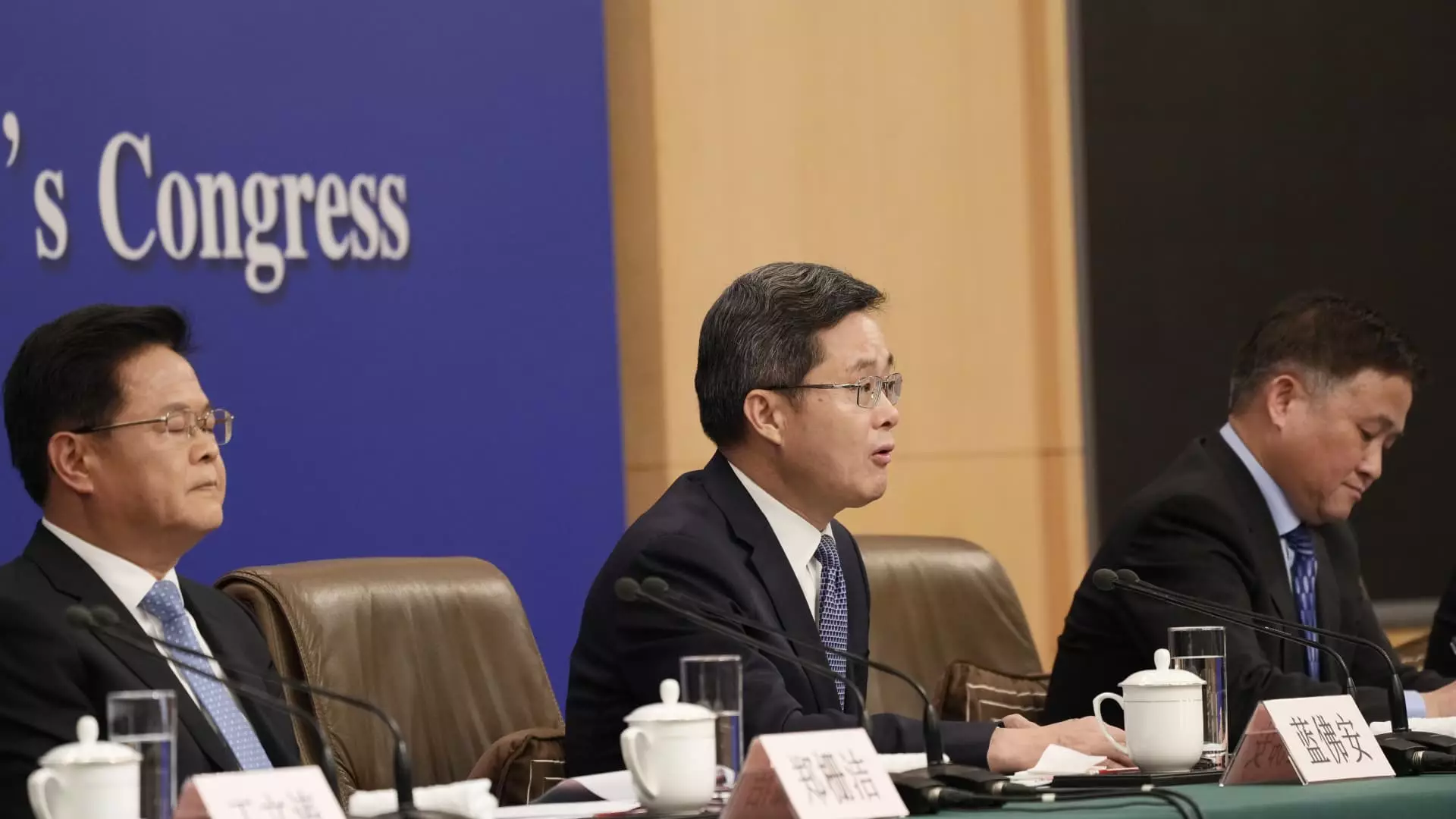In a recent press conference, China’s Minister of Finance, Lan Fo’an, indicated the central government’s willingness to increase its debt and deficit as part of a broader strategy to stimulate the economy. This move reflects the pressures facing the Chinese economy, where policymakers are grappling with a mixture of debt risks among local governments, a persistent real estate slump, and the challenge of boosting youth employment. While economist calls for heightened fiscal support echo in the halls of power, the government has yet to detail any definitive plans amidst an array of high-level discussions.
China’s economic landscape has shown mixed signals. Despite a nominal GDP growth rate of 5% in the first half of the year, analysts remain concerned that the country might fall short of its annual growth target of around 5%. This is underscored by signs of stagnation in regional retail sales and the ongoing real estate crisis, which continues to dampen the economic outlook. The urgency for economic revitalization is augmented by a meeting led by President Xi Jinping, where authorities emphasized the need for enhanced monetary and fiscal policies to navigate these turbulent waters.
Lan Fo’an outlined four key areas that government policies are currently deliberating over: providing support to local governments to mitigate debt risks, stabilizing the beleaguered real estate market, propelling the role of major state-owned banks, and addressing youth employment challenges. However, most notably, the details regarding the implementation of these policies remain elusive. As such, economists are left to speculate about the scope of fiscal stimulus required, with estimates ranging from approximately 2 trillion yuan ($283.1 billion) to upwards of 10 trillion yuan.
This ambiguity raises critical questions for stakeholders. How will any increased funding be utilized? Will it serve as a lifeline for struggling local government finances, or will it be strategically funneled towards boosting consumer spending—an essential cog in the economic machine? The effectiveness of these fiscal measures will be heavily reliant on how resources are allocated and the resultant impacts on the economy at large.
Following a week-long holiday, mainland Chinese stock markets displayed increased volatility as speculation and uncertainty over fiscal stimulus swirled. After an initial surge that saw the CSI 300 index rebound with its best week since 2008, optimism quickly faded as stock prices retreated to levels reminiscent of late September. This fluctuation is symptomatic of the broader economic anxieties gripping investors as they anticipate concrete policies from the government.
The Chinese government’s recent interventions, including interest rate cuts by the People’s Bank of China and an extension of real estate support measures, reflect an understanding that aggressive fiscal and monetary policies are necessary. Additionally, the National Development and Reform Commission’s (NDRC) commitment to expedite investment projects signals an awareness of the urgency required to address economic challenges.
As China steps closer to a key parliamentary meeting later this month, where legislative approval for any major fiscal infusion is anticipated, stakeholders watch closely. Analysts reiterate that while the amount of stimulus is critical, the manner in which it is deployed will ultimately determine its effectiveness in reviving economic momentum. For a nation of such global economic significance, the path pursued in the coming weeks will not only be crucial for domestic stability but will also reverberate throughout the international economic landscape.
In sum, as policymakers stand on the precipice of key economic decisions, the interplay of debt, fiscal policy, and governmental responsiveness will serve as the hallmark of China’s economic trajectory. The outcomes of these decisions will be pivotal in shaping not only the nation’s future but could also set precedents for other economies facing similar dilemmas in the post-pandemic world.


Leave a Reply